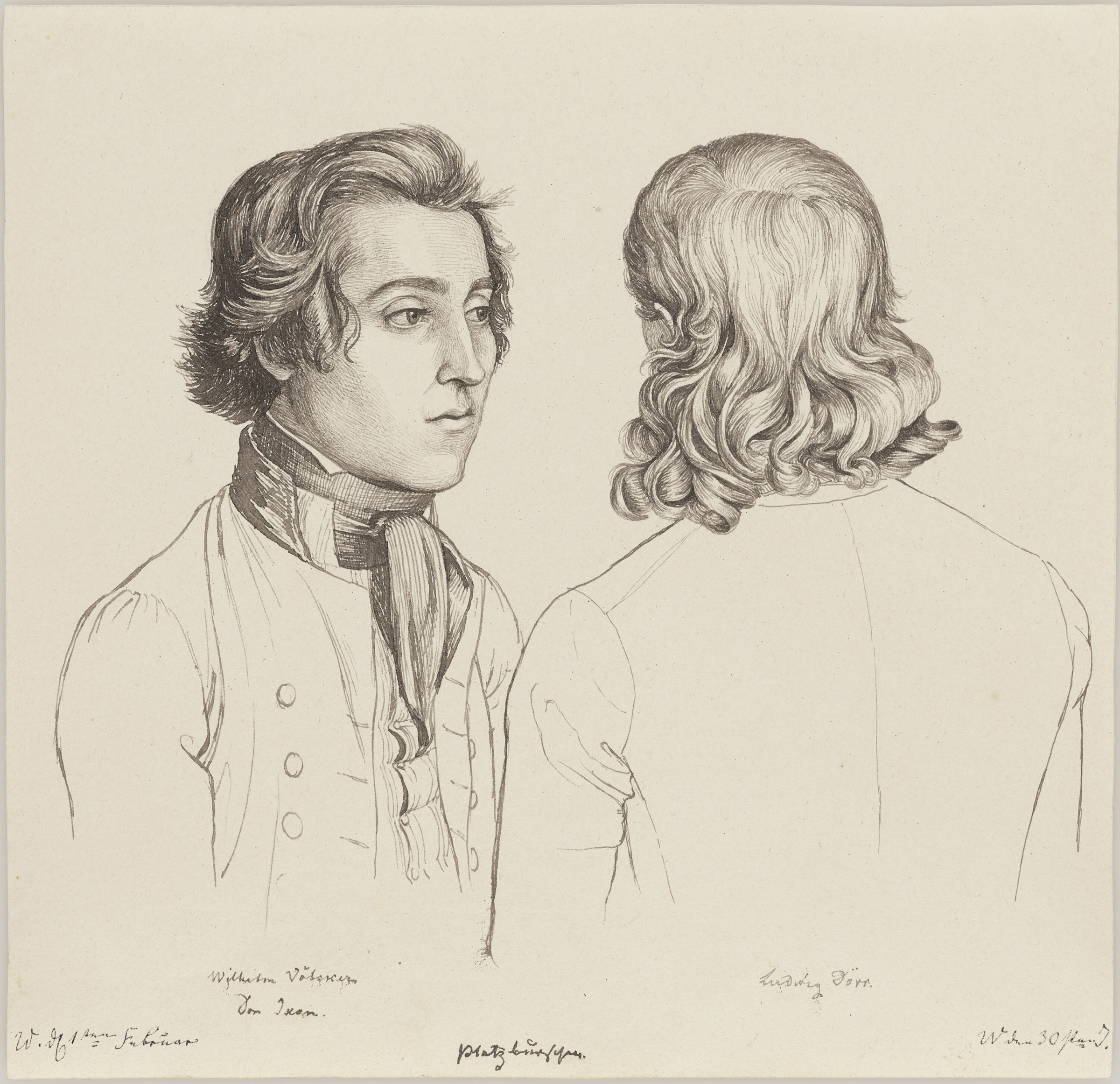Getty Adds an Uncanny Double Portrait
 |
| Gerhardt Wilhelm von Reutern, Portraits of Wilhelm Völker and Ludwig Dörr, 1825-1828. J. Paul Getty Museum, Los Angeles |
In 1978 the London dealership Hazlitt, Gooden & Fox presented a show of drawings by a little-known Biedermeier artist, Gerhardt Wilhelm von Reutern (1794-1865). The Fine Arts Museums of San Francisco bought one drawing, a double portrait of two unrelated women who nevertheless recall the uncanny twins of Arbus and Kubrick. In the decades since, the Met, the Morgan, and National Gallery have acquired drawings by Reutern. Now the Getty has added an example, Portraits of Wilhelm Völker and Ludwig Dörr.
 |
| Gerhardt Wilhelm von Reutern, Anne Lies Stamm and Anne Kathring. Fine Arts Museums of San Francisco |
Reutern was a German-Baltic aristocrat who enlisted in the Russian army during the Napoleonic Wars. He lost his right arm to a battlefield injury. Despite that, he taught himself to draw with his left hand, quickly surpassing the representational skills of his peers. Appointed court painter to the Russian Czar in 1837, Reutern turned out paintings of religious subjects and genre scenes, but it is his early portrait drawings that resonate today.
The drawing now at the Getty was exhibited at last summer's London Art Week by Elliott Fine Art. The visible sitter (Wilhelm Völker) is looking at another whose face is turned away from us (Ludwig Dörr). Reutern's inscriptions indicate that the mostly invisible Dörr was drawn two days before Völker. The artist did a separate, now untraced drawing of Dörr showing his face. Both sitters are identified as Platzburschen, leaders of village dances. Völker is annotated as a "Don Juan."
The composition brings to mind the reflection in Manet's Bar at the Folies-Bergère or (less anachronistically) E.T.A. Hoffmann's tales of doppelgängers. It's worth noting that "Don Juan" is a Hoffmann short story (1813). Hoffmann used the libertine anti-hero of Mozart's opera in a tale of weird coincidences.
Some things you can't make up. At his 1865 death, Reutern was laid to rest alongside his right arm, disinterred from the miniature coffin that had housed it.
 |
| Gerhardt Wilhelm von Reutern, Portrait of the Postillion Johann Heinrich Matheis. Metropolitan Museum of Art, New York. A postillion is the driver of the left-hand horse drawing a carriage. |
Comments
It goes way beyond the Met's or NG/DC holdings.
Morgan does have its own lovely double portrait, however ...
https://www.themorgan.org/drawings/item/145000
It's a reminder that tastemakers and cultural decisionmakers in a society at any particular time will give either thumbs up or thumbs down based on a wide variety of ambiguous or contradictory criteria. In today's era, that's now increasingly more political than ever before.
The Academy Museum at Fairfax and Wilshire, and Music Center in downtown LA now give honorable mention to the Tongva tribe of thousands of years ago---well before modern-day Los Angeles existed. The exhibit at the Oscar museum on the Hitchcock movie "North by Northwest" receives some of the same treatment.
Given the Met's comprehensive European painting collection, isn't it a bit silly to compare the two museums on the basis of a single drawing?
The Met drawing isn't even on view. Shows you how much the Met thinks of their von Reutern.
And drawings are routinely not on view, lest light degrades them.